Sergei Surovikin is a four-star general in the Russian Army. He is known for commanding the Russian contingent in Syria in 2017 and 2019. He made headlines in October 2022 when Russian President Vladimir Putin appointed him in charge of the Russian special military operation in Ukraine.
Contents
Wiki/Biography
Sergei Vladimirovich Surovikin was born on Tuesday, 11 October 1966 (age 56 years; as of 2022) in Novosibirsk, Russian SFSR, Soviet Union (now Siberian Federal District, Russian Federation). [1]Sergei Surovikin’s Twitter account After completing his formal education, Sergei Surovikin attended an officers’ training course at the Omsk Higher Military Command School in 1987.
Physical Appearance
Height (approx.): 5′ 9″
Hair Colour: Bald
Eye Colour: Dark Brown
Family
Wife & Children
Sergei Surovikin is married and has two daughters.
Religion
Sergei Surovikin follows Christianity.
Career
Sergei Surovikin’s career as an officer began in 1987 when he completed his training at Omsk Higher Military Command School and joined the Russian Army. Soon after joining the Russian Army, he was sent to Afghanistan, where he served with the Russian special forces “Spetsnaz” till the end of the Soviet-Afghan war in 1989. After the end of the war, he returned to Russia from Afghanistan and was promoted to the rank of captain following which he became a commander of the Russian Army’s 2nd Guards Tamanskaya Motor Rifle Division. In 1995, Sergei was sent to pursue a military course at the M.V. Frunze, a Russian military academy after which he was posted as chief of staff of the 92nd Motor Rifle Regiment and 149th Guards Motor Rifle Regiment. Later, he was posted to Tajikistan as the commander of the Russian Army’s 201st division, which was the Russian Army’s largest mountain warfare specialised unit. After completing his tenure as the commander of the 201st division, Sergei was promoted and made chief of staff of an infantry division. In 2002, Sergei Surovikin attended the Military Academy of the General Staff of the Armed Forces of the Russian Federation following which he was sent to command the 34th Simferopol Motorized Rifle Division, which was stationed at Volga-Urals Military District. In June 2004, during the second Russian-Chechen War, Sergei was promoted to the rank of major general and sent to Chechenya as a senior commander of the 42nd Guards Motor Rifle Division that was stationed in Chechenya. After serving as a commander till 2005, Sergei was sent to the Northern Caucasus region, where he participated in military operations as a deputy commander of the 20th Guards Combined Arms Army of the Moscow Military District. In the same year, he became the commander of the 20th Guards Combined Arms Army. In 2008, he was appointed as the chief of the Main Operational Directorate (MOD) in Moscow. He, later on, became the Deputy Chief of the General Staff (DCGS) of the Armed Forces of the Russian Federation. In January 2010, Sergei was appointed as the chief of staff of the Volga-Urals Military District. In 2010, Sergei was promoted to the rank of lieutenant general following which he was posted at the Central Military District (TsVO) as its Chief of Staff – First Deputy Commander. In 2011, Sergei was posted to the Kremlin, where he oversaw the raising of the Russian Army’s Military Police (MP); however, he was unable to become the chief of the military police because his appointment was objected to by the office of the Military Prosecutor. In 2012, Sergei was posted to Ulitsa Serysheva as chief of staff of the Eastern Military District.
In early 2013, he was posted as the commander of the Air Defense Forces. In October 2013, he was promoted and made the commander of the Eastern Military District, where he served till December 2013. Sergei was promoted to the rank of colonel general in December 2013. In 2017, after the Russian government announced military operations in Syria, Sergei was sent to Syria as the force commander of the Russian Armed Forces. Talking about it, he said,
The operation to liberate the territory of Syria from the terrorist groups like ISIS and Jabhat al-Nusra will continue until they are completely eliminated. The operation to liberate Syria from IS and Jabhat al-Nusra terrorists will continue and we will continue to aid the Syrian Arab Army in their military operations against the terrorists.”
Reportedly, by the time his tenure ended in Syria, the Russian Armed Forces and Syrian Armed Forces had managed to capture more than half of the territory held by organisations like ISIS, ISIL, and the Free Syrian Army (FSA). [2]kommersant After his return to Russia from Syria in September 2017, Sergei replaced Viktor Bondarev as the commander of the Aerospace Forces. According to some Russian Ministry of Defence (MoD) sources, Sergei’s appointment as the commander of the Russian Aerospace Forces was objected to by the politicians in Russia; however, the ministry of defence appointed him as the commander.
In January 2019, Sergei was once again sent to Syria as the commander of the Russian forces operating in Syria. There, he served as a commander till April 2019. Upon returning to Russia from Syria, Sergei was given a promotion and made the General of the Russian Army, an appointment held previously by only a few officers. [3]TASS On 24 February 2022, citing the “denazification of Ukraine through a special military operation,” Russia invaded Ukraine; however, according to several sources the war did not go as expected by the Russian military, and in June 2022, Kremlin appointed Segei as the commander of the Army Group South. Reportedly, under his command, the Russian ground forces managed to capture strategically important Ukrainian towns in a short period. In October 2022, owing to his operational planning skills, Sergei replace Colonel General Gennady Zhidko as the commander of the Russian forces in Ukraine. Talking about the military operations in Ukraine, Sergei said,
The situation in this area is difficult. The enemy is deliberately striking infrastructure and residential buildings. Russian forces in the Kherson region have been driven back by 20-30 km (13-20 miles) in the last few weeks and are at risk of being pinned against the western bank of the 2,200-km-long Dnipro river that bisects Ukraine. So yes, the situation is tense, but let’s not panic. Panic is bad for everything. The Russian paratroopers and guards here are ready to defend, we have people, equipment and artillery here.”
According to several reports, when Sergei Surovikin took over as the commander of the Russian forces in Ukraine, the Russian Armed Forces increased the intensity of their military operations.
Controversies
Human rights violations
In August 1991, during the military coup in Russia, Sergei, as commander of a detachment of the 1st Rifle Battalion in the 2nd Guards Tamanskaya Motor Rifle Division, was ordered to dislodge a group of anti-coup protestors in a tunnel in Central Moscow. Reportedly, after Sergei and his detachment reached the tunnels in armoured vehicles, the protestors surrounded and attacked them following which Sergei ordered his men to open fire on the protestors which resulted in the death of three people. After the failure of the coup, Sergei was arrested by the police and sent to jail; however, he was released early from jail after Boris Nikolayevich Yeltsin became the President of the Russian Federation in 1991. [4]The Guardian [5]The Washington Post In 2019, after taking over as the commander of the Russian contingent operating in Syria, Human Rights Watch published a report in 2020 in which they claimed that the Russian forces, under the command of General Sergei Surovikin, indiscriminately bombed the civilian areas. [6]Radio Free Europe/Radio Liberty The report said,
Sergei Surovikin is one of several Russian military commanders who knew or should have known about the abuses and took no effective steps to stop them or punish those directly responsible for the deaths of hundreds perhaps thousands of innocent civilians in Syria.”
In October 2022, a report was published by the United Nations (UN) in which it claimed that the Russian forces, on the command of Sergei, had increased their attempts to retake the lost grounds in Ukraine due to which they indiscriminately shelled the civilians. [7]Radio Free Europe/Radio Liberty The report said,
We have documented patterns of summary executions, unlawful confinement, torture, ill-treatment, rape, and other sexual violence committed in areas occupied by Russian troops across the four regions covered by the report. The vast majority of the violations identified, Ukrainian forces have also committed international humanitarian law violations in some cases, including two incidents that qualify as war crimes.”
Accused of smuggling arms
In 1995, while serving in the M.V. Frunze Military Academy, Sergei, who back then was a major in the Russian Army, was caught by the intelligence department after they had received information on Sergei illegally procuring and providing arms and ammunition to other officers of the Russian Armed Forces. Sergei was taken into custody by the intelligence department for questioning; however, upon finding no conclusive evidence against him, the investigative body dropped the charges against Sergei. [8]kommersant Talking about it, the then deputy director of the intelligence department, Sergei Fridinsky, said,
Being a student of the Frunze Military Academy, he was found guilty by the military court of the Moscow garrison of assisting in the acquisition and sale, as well as carrying firearms and ammunition without a proper permit (Article 17 , Part 1, Article 218 of the Criminal Code of the RSFSR). He was sentenced to one year of probation. Major Surovikin agreed to hand over a pistol to a colleague from another course, which was supposed to be used allegedly to participate in the competition. The major, unaware of the true intentions, fulfilled the order. During the interrogation, Sergei Surovikin said that he was sure that he was not doing anything illegal. When the investigation figured out that the officer had been set up, the charge was dropped and the conviction was canceled.”
Accused of assaulting a Russian Army officer
Sergei Surovikin was accused by a fellow Russian Army officer Lieutenant Colonel Viktor Chibizov in March 2004 of resorting to violence for not voting for President Vladimir Putin during the 2003 Presidential elections in Russia.
Allegations of a Russian Army officer committing suicide in front of Sergei
In April 2004, according to several sources, when Sergei was serving as the commander of the 34th Motor Rifle Division at Yekaterinburg, Colonel Andrey Shtakal, a deputy commander of the 34th motorized rifle division for weapons, shot himself in his office. The sources also claimed that after Andrey was humiliated by Sergei, he took his life with his service weapon in his office in front of Sergei Surovikin. After the incident, the Russian Ministry of Defence (MoD) ordered a court of inquiry; however, the case was closed as the investigative body could not find any evidence of Sergei’s presence in the office when Andrey committed suicide. [9]NEWSru.com
Military Awards
- Sergei Surovikin was awarded the Order of the Red Star by the Russian government.
- The Russian government presented the Order of Military Merit to Sergei Surovkin.
- Sergei Surovkin has been awarded the Order of Courage by the Russian government three times.
- In December 2017, the Russian government presented Sergei Surovikin with Russia’s highest honour the Hero of the Russian Federation medal.
Facts/Trivia
- According to several sources, many Russian military officers call Sergei Surovikin “General Armageddon” and “The Butcher of Syria” because of the ruthless policies that he made during his tenure as commander of the Russian contingent in Syria. [10]The Guardian [11]Atalayar
- In February 2022, the European Union (EU) held Sergei Surokivin responsible for “actively supporting and implementing actions and policies that undermined and threatened the territorial integrity, sovereignty, and independence of Ukraine as well as the stability or security of the country,” and placed him under the sanctioned list. [12]Eur-Lex
- Sergei Surovikin consumes alcohol.

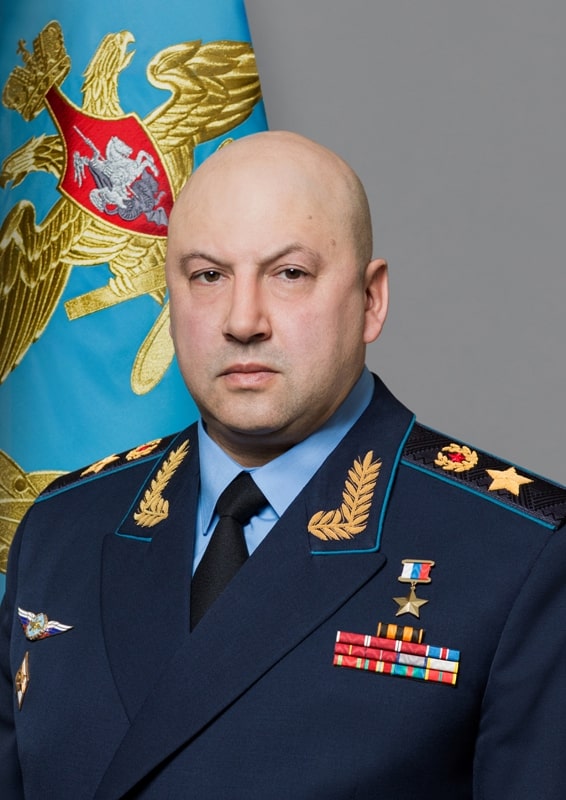
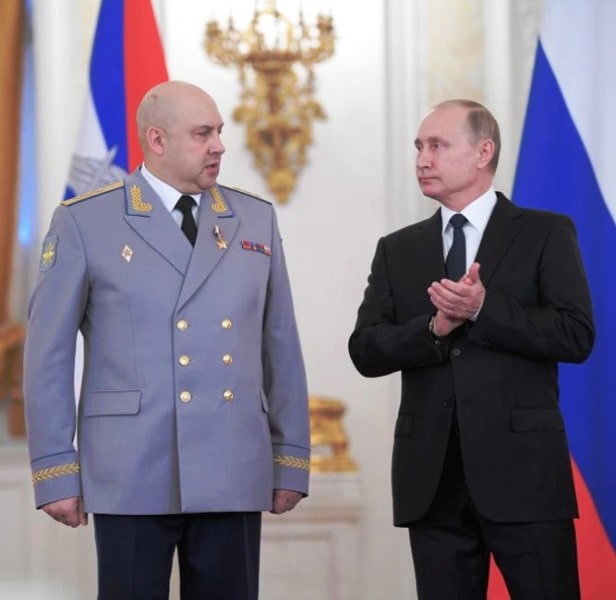
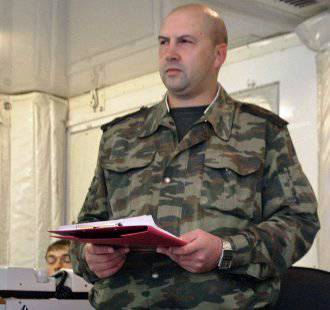
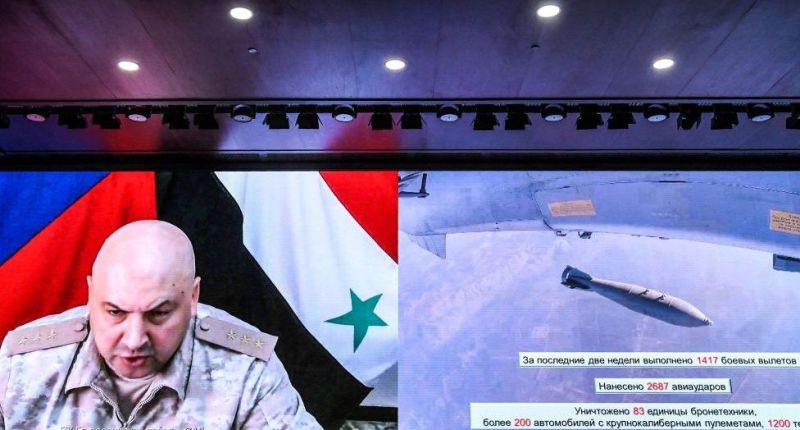
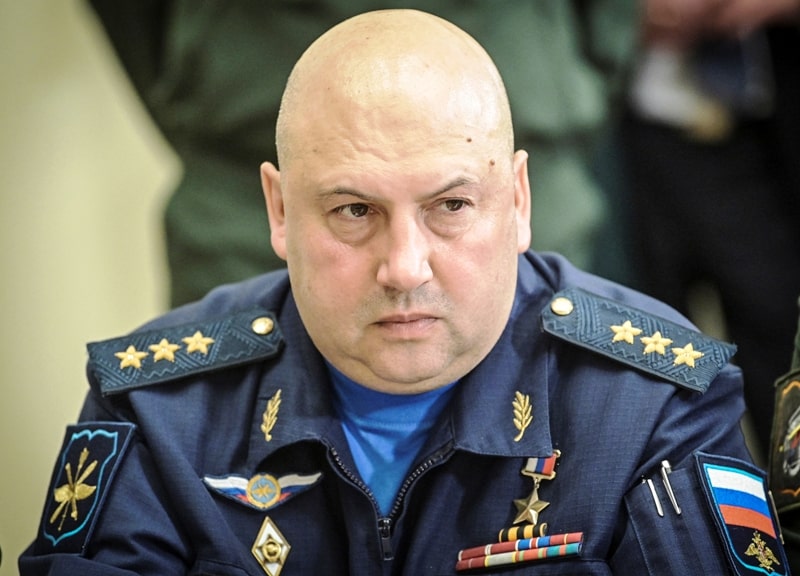
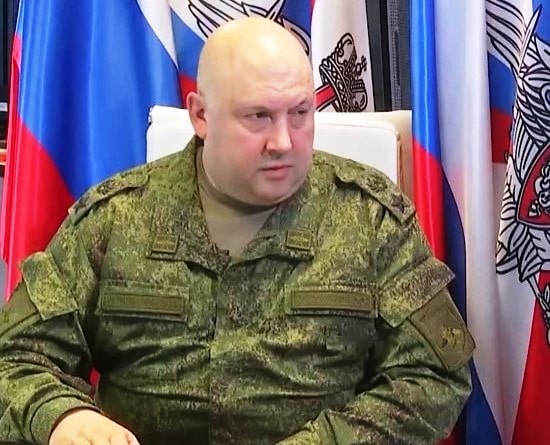
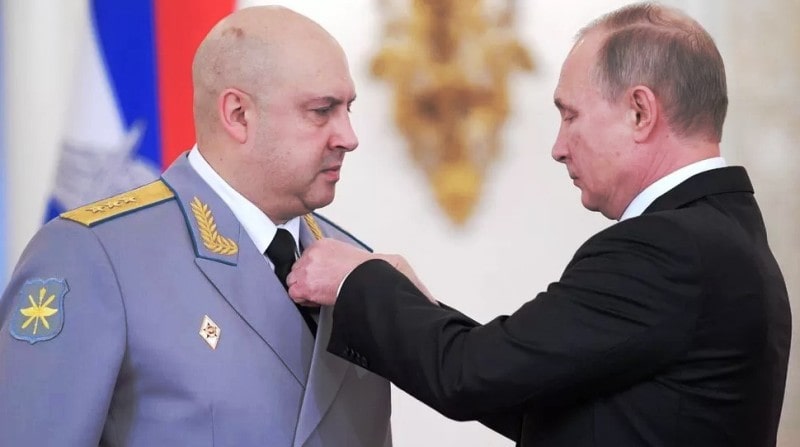
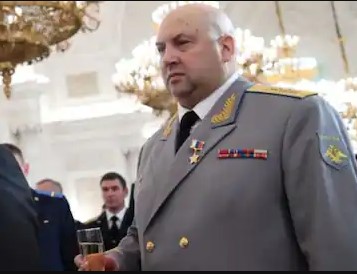
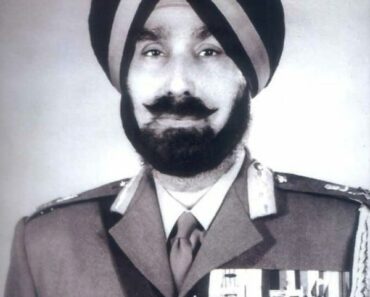
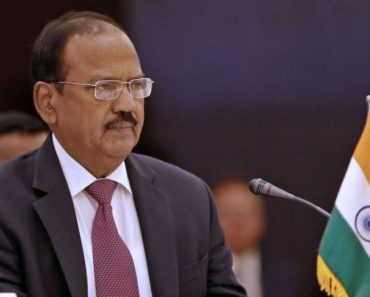
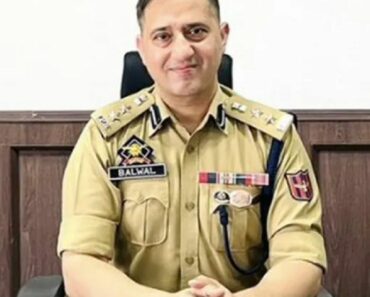
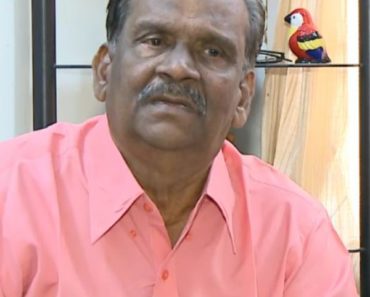
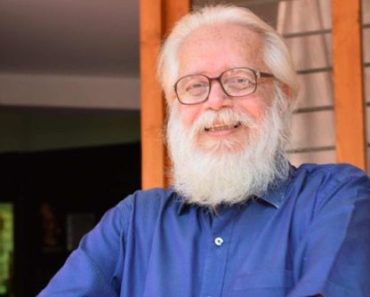
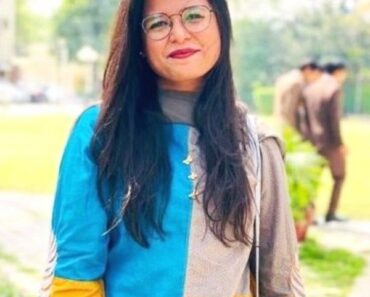
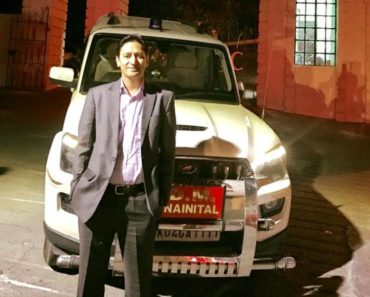
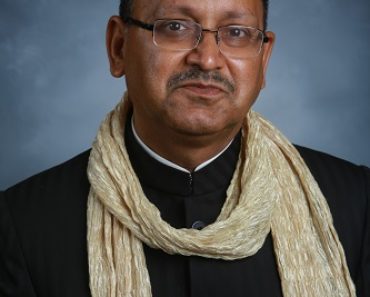
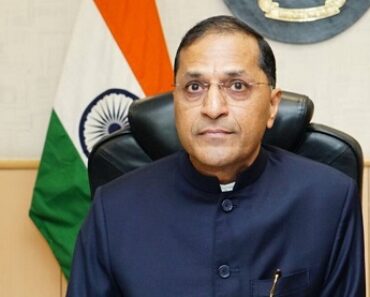
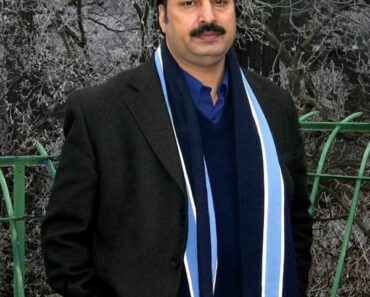
Surovkin..BUTCHER of Syria…is TYPICAL…MURDERER..PUPPET..of kremlin,this FAT ..PIG..WILL be DEAD ,sonnest.like ALL MAFIA ..within…be ASSUREDED !.